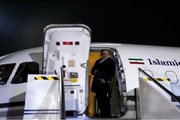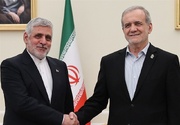The Israeli government makes every effort to detect alleged risks to its security coming from the Islamic world. Sometimes the policy is not restricted to the Muslim world. The assassination of Naji al-Ali in 1987, a Palestinian cartoonist working in France who encouraged anti-Zionist sentiments through his work, showed that the Israelis have no tolerance for anyone they deem to be a security risk.
Over the past few years, with the rise of the far right in Israel, the Zionists have increased their acts of sabotage and terrorism, using the pretext of maintaining their security. The recent attack on a munitions plant in Sudan shows that Israel believes it has the right to make preemptive strikes if it feels that a terrorist threat is emanating from another sovereign country.
Israel has always regarded Sudan as a security threat. The revolutionary government of Sudan, led by President Omar al-Bashir, has successfully united the country’s Shia and Sunni citizens against the Zionist regime. Sudan’s geopolitical position on the Red Sea and its proximity to Israel are serious potential threats to the existence of Israel, which have always caused headaches in the occupied territories and have prompted the Israelis to launch a number of military attacks on Sudan before the recent incident. In 2009, an Israeli airstrike on a convoy in Sudan killed dozens of innocent people. The airstrike was launched on the pretext that they were suspected arms smugglers.
In the wake of Hezbollah’s recent successful drone operation in Israel, the government of Prime Minister Benjamin Netanyahu has had to deal with political and public pressure, and some Israeli settlers have even reportedly begun to emigrate from the occupied territories due to their sense of insecurity. The recent attack on the factory in Sudan was actually meant to be a show of strength and a quick fix to address the Israeli government’s inability to satisfactorily respond to public expectations.
However, the attack will certainly have repercussions for the Zionist regime since it will increase anti-Israeli sentiment as the wave of popular uprisings in Islamic countries surges. The U.S. government will also become more and more dissatisfied with Israel’s obstinacy since uncoordinated attacks sully the United States’ image in the region.
Jafar Qannadbashi is an expert in African politics based in Tehran.
MS/HG
END
MNA
























Your Comment